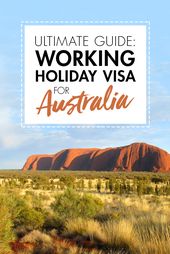Indonesia
The name Indonesia has its roots in two Greek words: Indos – meaning Indian and "Nesos" which means islands. It is an appropriate description of the archipelago as there are estimated to be a total of 17,508 islands, of which only about 6,000 are inhabited, stretching for 5,150 km between the Australian and Asian continental. The main islands are Sumatra Kalimantan (Sulawesi Irian Jaya), and last but not least Java. The nation's capital, Jakarta, has a fascinating and significant history
Climate – Indonesia's climate is definitely tropical. The main seasons are summer, winter and monsoon; it is devoid of autumn and spring.
Culture – Indonesia is rich in art and culture which are intertwined with religion and age-old traditions. The basic principles which guide life include the concepts of mutual assistance or "gotong royong". Religious influences on the community are varied from island to island. Indonesia is rich with culture with 250 – 300 ethnic groups live here.
From graceful court and temple dances to charming folk dances and boisterous play, the performing arts of Indonesia offer an astounding range of types and styles, shadow puppeteer is famous.
Cuisine – Fish features prominently in the diet as fresh, salted, dried, smoked or a paste. Coconut is found everywhere. The staple food traditionally ranges from rice corn, sago, cassava to sweet potatoes.
Hot spots – Indonesia is a mix of beaches, forests and citie s- Amlapura, Bali Barat National Park, Irian Jaya,, Java, Jakarta, Baluran National Park, Karimunjawa Islands, Kalimantan (Borneo), Gili Islands, Gunung Rinjani Ritepao, Tanatoraja, Sumatra, Bukit Barisan Selatan National Park, Harau Valley, Jangga Village, Kerinci-Seblat National Park, Lingga Village, Medan, Mentawai Islands, Ngalau Indah Caves, Ngarai Sianok (Sianok Canyon), Padang, Pandaan Beach, Pandi Sikat, Parapat, Samosir Island, Siberut Island, Sipiso-piso Waterfall, Taman Hutan Raya Bung Hatta, and more.
Malaysia
The Malay Peninsula has thrived from its central position in the maritime trade routes between China, India and the Middle East. It is shown on early map with a label that translates as "Golden Chersonese"; the Straits of Malacca were referred to as "Sinus Sabaricus". The two distinct parts of Malaysia, separated from each other by the South China Sea, share a large similar landscape in that both West and East Malaysia feature coastal plains rising to often densely forested hills and mountains. Putrajaya is the newly created administrative capital whereas the capital city isKuala Lumpur. Georgetown, Ipoh, Johor Bahru, Kuching, Kota Kinabalu, Alor Sar, Malacca Tow, and Klang are the major cities.
Climate – It's hot and humid year-round in Malaysia.
Culture – Malaysia is a multi-ethnic, multi-cultural and multilingual society, consisting of 52% Malays and other indigenous tribes. With Malays, Chinese and Indians living side by side The music, art, food, dance, architecture and general day to day living are influenced by all three to some degree, creating some of Asia's most fascinating sounds, sights and tastes. Malay traditional music is heavily influenced by Chinese and Islamic forms, it is based very much around the gendang (drum), but includes other percussion instruments. The country has a strong tradition of dance and dance dramas, some of Thai, Indian and Portuguese origin. Other artistic forms include wayang kulit (shadow puppet theater), silat (a stylized martial art).
Cuisine – There is a great variety; spicy Malay Food, a seemingly endless variety of Chinese food, exotic cuisine from North and South India, as well as Nyonya and Portuguese Food.
Hot spots – Malaysia's love of Western-style is abundantly clear in its big cities, Kuala Lumpur, Penang etc. Malaysia boasts some of the most superb beaches, mountains and national parks in Asia. Cameron Highlands, Batu Caves, Lake Gardens, Sepilok Orang-Utan Rehabilitation Center, Taman Negara National Park.

